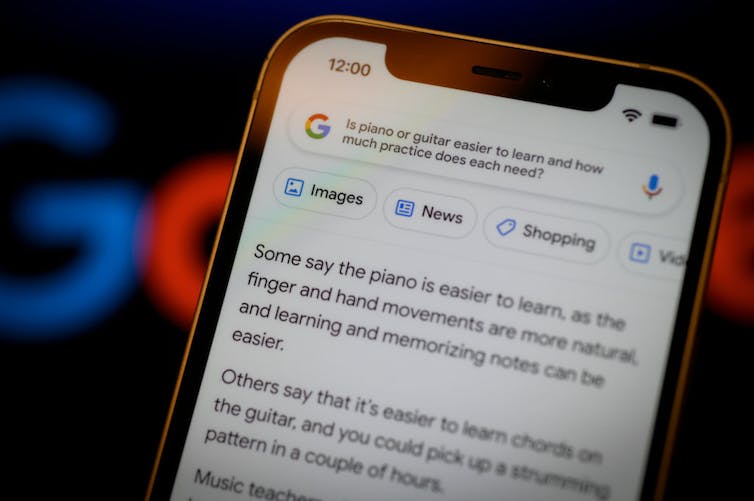Google, Microsoft and others boast that generative artificial intelligence tools like ChatGPT will make searching the internet better than ever for users. For example, rather than having to wade through a sea of URLs, users will be able to just get an answer combed from the entire internet.
There are also some concerns with the rise of AI-fueled search engines, such as the opacity over where information comes from, the potential for “hallucinated” answers and copyright issues.
But one other consequence is that I believe it may destroy the US$68 billion search engine optimization industry that companies like Google helped create.
For the past 25 years or so, websites, news outlets, blogs and many others with a URL that wanted to get attention have used search engine optimization, or SEO, to “convince” search engines to share their content as high as possible in the results they provide to readers. This has helped drive traffic to their sites and has also spawned an industry of consultants and marketers who advise on how best to do that.
As an associate professor of information and operations management, I study the economics of e-commerce. I believe the growing use of generative AI will likely make all of that obsolete.
How online search works
Someone seeking information online opens her browser, goes to a search engine and types in the relevant keywords. The search engine displays the results, and the user browses through the links displayed in the result listings until she finds the relevant information.
To attract the user’s attentions, online content providers use various search engine marketing strategies, such as search engine optimization, paid placements and banner displays.
For instance, a news website might hire a consultant to help it highlight key words in headlines and in metadata so that Google and Bing elevate its content when a user searches for the latest information on a flood or political crisis.

Google Bard answers your question or prompt in a single reply, as opposed to the lists of links generated by regular search engines.
Jaap Arriens/NurPhoto via Getty Images
How generative AI changes search process
But this all depends on search engines luring tens of millions of users to their websites. And so to earn users’ loyalty and web traffic, search engines must continuously work on their algorithms to improve the quality of their search results.
That’s why, even if it could hurt a part of their revenue stream, search engines have been quick to experiment with generative AI to improve search results. And this could fundamentally change the online search ecosystem.
All the biggest search engines have already adopted or are experimenting with this approach. Examples include Google’s Bard, Microsoft’s Bing AI, Baidu’s ERNIE and DuckDuckGo’s DuckAssist.
Rather than getting a list of links, both organic and paid, based on whatever keywords or…
